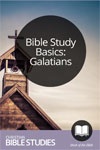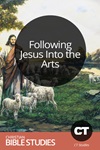For two weeks now, our kids have been singing, "Hosanna!" Penny, our 4-year-old, sings the whole song: "Hosanna to the King of Kings!" William, 20 months old, just repeats this new, favorite word. We went for a walk yesterday afternoon, and there they were, arms raised, running in circles, singing "Hosanna!" Or in the car, driving to the grocery store, "Hosanna!" In line at the post office, "Hosanna!" We live in a pretty secular neck of the woods. My husband and I find ourselves quieter than we wish when it comes to faith. But our kids give us away all the time.
Right now, Penny and William don't know about what I have taken to calling "American Easter." They don't know about the Easter bunny. They don't know that the chocolate eggs and jelly beans that have shown up in our kitchen are connected to this upcoming holiday. They don't think of Easter as a day of candy and treats and baby chicks and bunny rabbits. Their experience of Easter right now comes only through stories and songs learned in church.
But Penny is old enough now for us to make some decisions. Will our kids grow up with fond memories, as I did, of wearing new clothes and searching for Easter baskets on Sunday morning? Will they think of Easter as a time to dye eggs? As a harbinger of spring?
As far as Barnes & Noble and Wal-Mart and flower shops are concerned, Easter is about big business. The spiritual stuff is optional. The jelly beans and cards are not. In fact, the money spent on candy in preparation for Easter is comparable to the money spent on candy for Halloween.
My initial reaction to all this material stuff—the pink plastic toys and cartoon bunnies and marshmallow candies—is to abandon it altogether. I want to retreat to the spiritual realities of Christ, died and risen, of life triumphing over death, of hope for eternal life and for God's good re-creation of this world. Solution number one to the problem of American Easter is to ignore it and emphasize the spiritual.
But that solution is not without its own problems. This year I observed Lent for the first time in many years, and I've observed it in a very physical way, giving up my regular glass of wine with dinner. This physical act of self-denial is meant to serve as a means of spiritual preparation for the truth of God's sacrifice on the cross and victory over the grave. Lent is a 40-day fast, but those 40 days encompass almost seven weeks on the calendar because Sunday is never a day of fasting. It is always a feast day, a celebration of our Lord's life. Every Sunday is a harbinger of Easter.
This Lenten practice has made me more aware of the problems with approaching "Christian Easter" as a purely spiritual celebration. There is nothing more physical than the cross, except, perhaps, the resurrection of the body. Our Easter celebration becomes heretical as soon as it enters the realm of the purely spiritual. Reducing Easter to spiritual truth is nearly as problematic as reducing it to jelly beans.
So I am looking for ways to connect the spiritual reality of Jesus' victory over death and our new life in Christ with our physical experience on Easter Sunday. A friend of mine mentioned that her church growing up always finished their Easter service by going outside and dancing. Another mentioned starting Easter Sunday as a congregation with a pancake breakfast. I don't think the Easter bunny is going to visit our house. But we will eat some jelly beans and chocolate eggs and let our kids run outside and shout "Hosanna!" as loud as they want.
Adapted from "Caught between the Easter Bunny and the Empty Grave," by Amy Julia Becker, Her.meneutics. Click here to read the original article in its entirety and for reprint information.











